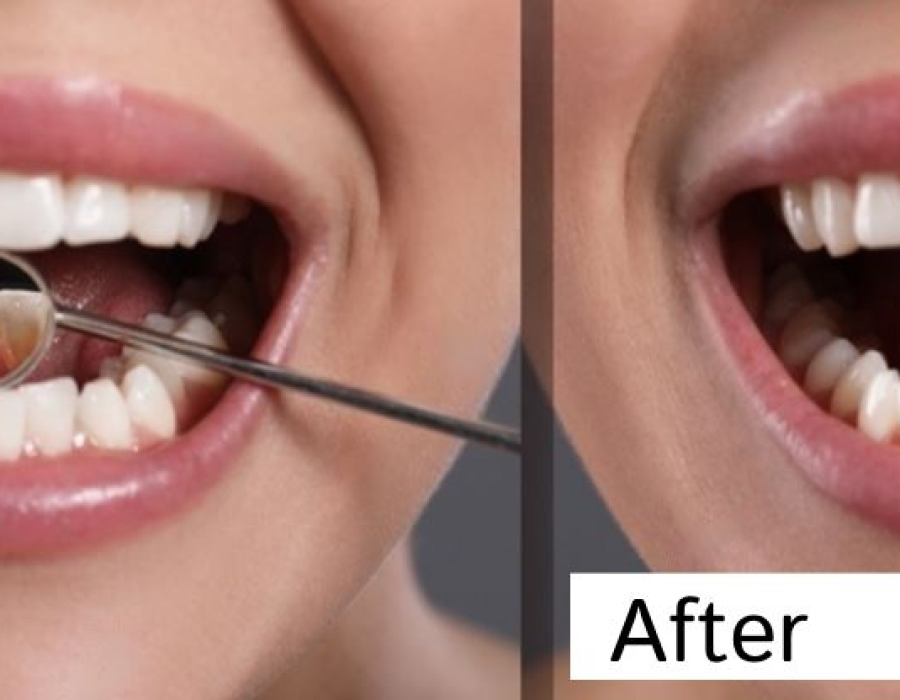Maintaining optimal oral health requires more than just brushing and flossing daily. Regular dental checkups play a crucial role in preventing various dental issues, including the development of it. It, a hardened plaque that forms on teeth, can lead to serious dental problems if not addressed timely. This article explores the importance of regular dental visits in preventing it and ensuring overall dental health.
Understanding Calculus Bridge
It, also known as tartar, forms when plaque, a sticky film of bacteria, mineralizes on the teeth. This hardened deposit can build up on the teeth and along the gum line, creating a bridge-like structure that connects adjacent teeth. Unlike plaque, which can be removed by brushing and flossing, calculus requires professional cleaning by a dentist or dental hygienist.
The Formation
The formation of calculus bridge begins with plaque, which is a mixture of food particles, saliva, and bacteria. If plaque is not removed through regular brushing and flossing, it can harden into calculus within 24 to 72 hours. Once it forms, calculus acts as a breeding ground for more plaque, perpetuating a cycle of buildup that can lead to gum disease, tooth decay, and other oral health issues.
The Impact on oral health
It can have significant negative effects on oral health. It provides a surface for further bacterial accumulation, which can cause inflammation and infection of the gums, known as gingivitis. If left untreated, gingivitis can progress to periodontitis, a more severe form of gum disease that can result in tooth loss. Additionally, the presence of calculus makes it more challenging to maintain good oral hygiene, as brushing and flossing become less effective.
The Importance of Regular Dental Checkups
Regular dental checkups are essential for preventing the formation and buildup of it. These checkups typically involve a thorough examination of the teeth and gums, professional cleaning, and personalized oral health advice. Here’s how regular dental visits help in preventing it.
Professional Cleaning
During a dental checkup, a dental hygienist performs a professional cleaning, also known as prophylaxis. This procedure involves the removal of plaque and calculus from the teeth, particularly in areas that are difficult to reach with regular brushing and flossing. Professional cleaning is the only effective way to remove calculus once it has formed, preventing it from contributing to further oral health issues.
Personalized Oral Health Advice
Dentists provide personalized oral health advice based on the individual needs of their patients. During a checkup, the dentist can assess a patient’s oral hygiene practices and recommend improvements to prevent the formation of calculus bridge. This advice may include tips on brushing techniques, the use of interdental brushes or floss, and recommendations for specific dental products.
The Role of Home Care in Preventing Calculus Bridge
While regular dental checkups are crucial, maintaining good oral hygiene at home is equally important in preventing it. Here are some key practices to incorporate into your daily routine:
Brushing and Flossing
Brush your teeth at least twice a day using fluoride toothpaste. Make sure to brush all surfaces of your teeth, including the front, back, and chewing surfaces. Floss daily to remove plaque and food particles from between your teeth and along the gum line, where your toothbrush may not reach effectively.
Using Antimicrobial Mouthwash
Incorporating an antimicrobial mouthwash into your oral hygiene routine can help reduce the bacteria that contribute to plaque formation. Rinse with mouthwash after brushing and flossing to help keep your mouth clean and reduce the risk of calculus buildup.
Healthy Diet
A healthy diet plays a significant role in maintaining oral health. Limit sugary and starchy foods, as they can contribute to plaque formation. Instead, opt for a balanced diet rich in fruits, vegetables, lean proteins, and whole grains. Drinking plenty of water also helps wash away food particles and bacteria from your mouth.
The Long-Term Benefits of Regular Dental Checkups
The long-term benefits of regular dental checkups extend beyond the prevention of it. Consistent dental care helps maintain overall oral health, reducing the risk of tooth decay, gum disease, and other dental issues. Additionally, regular checkups can improve your overall health, as poor oral health has been linked to various systemic conditions, such as heart disease and diabetes.
Conclusion
Regular dental checkups are a vital component of preventive oral healthcare. By removing plaque and calculus, detecting dental problems early, and providing personalized advice, dentists play a crucial role in preventing the formation of calculus bridge. Combined with good oral hygiene practices at home, regular dental visits ensure the long-term health of your teeth and gums, contributing to your overall well-being. Prioritize your dental health by scheduling regular checkups and maintaining a consistent oral hygiene routine.






Comments